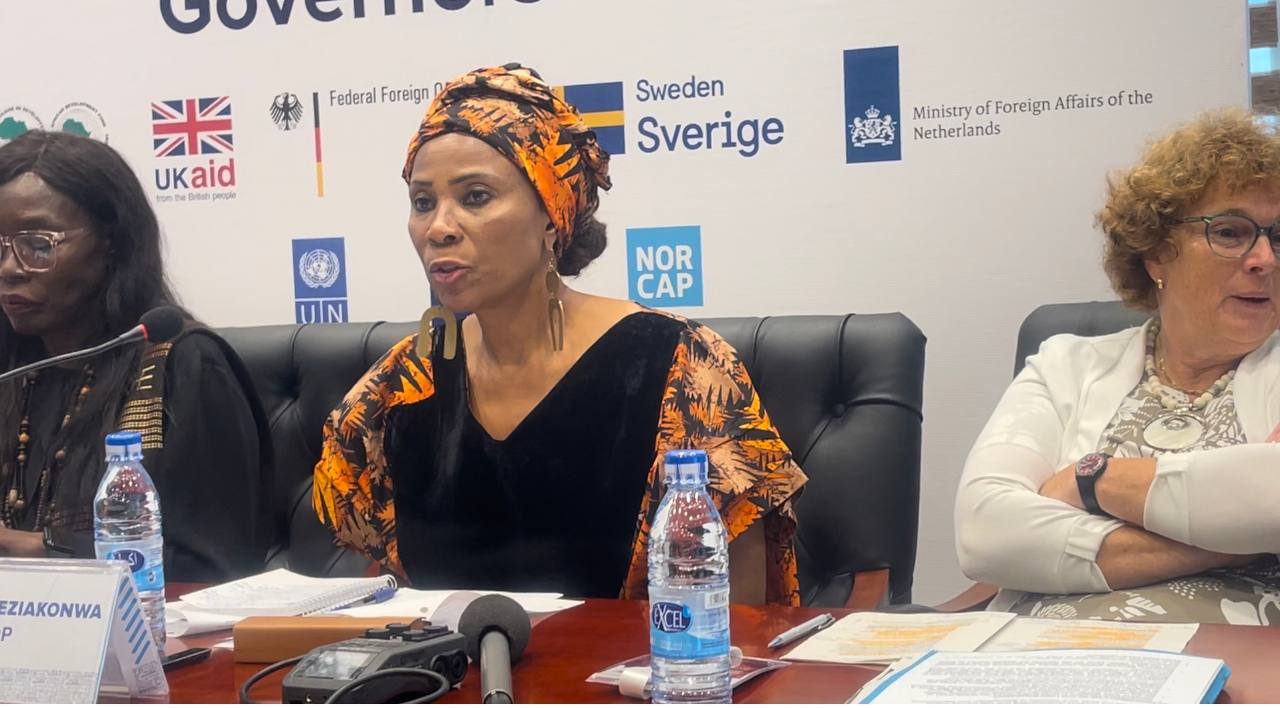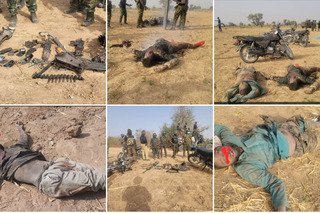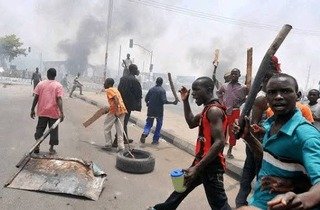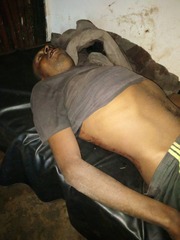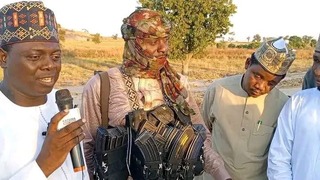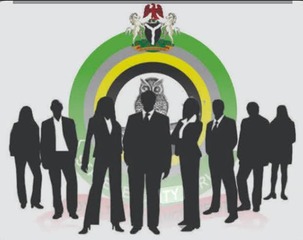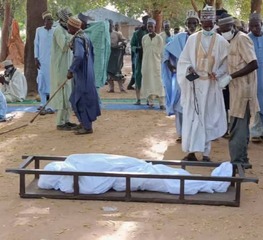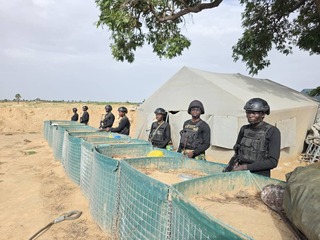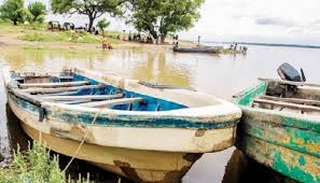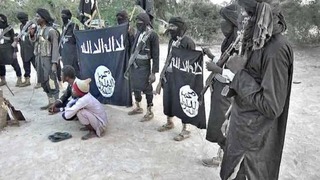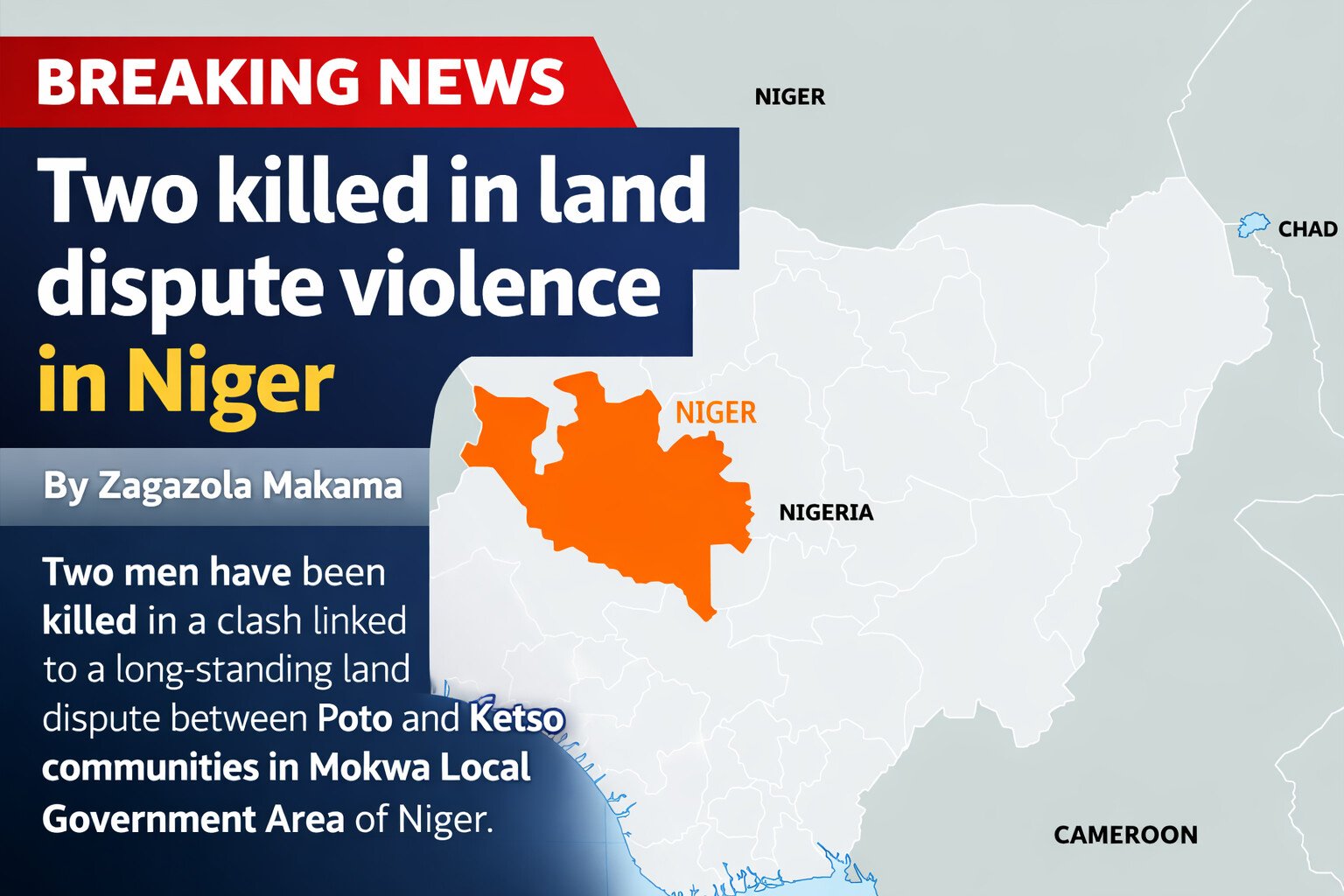UNDP restored hope to 1.3 million people in Lake Chad region -Eziakonwa
Zagazola Makama
The United Nations Development Programme (UNDP) says it has
restored hope to more than 1.3 million people of whom over 700 thousand are women.
Ms. Ahunna Eziakonwa UNDP’s Assistant Administrator and Regional Director for Africa made this known on Friday during the Fourth Lake Chad Governors Forum meeting in N’Djamena, Chad.
The forum occurs amidst shifting conflict patterns and emerging challenges that have resulted in widespread displacement, damage to the social fabric, interrupted public services, and weakened institutional capacities across the affected countries – Chad, Cameroon, Niger and Nigeria.
Eziakonwa said together with the governments of the Lake Chad basin, the UNDP built homes, schools and health centers; restored markets and feeder roads; repaired garrisons and police stations; and gave access to energy and light.
She said that this has enabled more than 400,000 displaced persons to return home.
"By working together, we have given hope to the displaced and conflict-affected people in the region by restoring their lives and livelihoods back.
"Let me share with you some personal stories. Across the border, in Ngarannam Nigeria, we have stories of hope and dignity restored.
"Mrs Yerima, a mother of eight children, is now a Stabilization steering committee leader. Her story is powerful, signifying what it means to move from a displacement camp and to return “home.” With her children in school, and her husband reclaiming his livelihood.
She said "In Cameroon, beyond the infrastructural improvements, the Stabilization program in Amchide and Banki had a profound impact on the lives of farmers who lost everything due to the conflict.
She explained that through the program's vocational training and seed funding, farmers were able to restart their agricultural activities, leading to a collective resurgence in agricultural productivity and economic stability.
"In all these countries and communities, what we have seen over the past three years is how the impact of the Stabilization program extended far beyond numbers and statistics. It has restored hope, dignity, and a sense of purpose to individuals who had once been displaced and marginalized.
"We have proof that the stabilization model works. Across the Lake Chad Basin region, we see islands of stability where people have regained normalcy in their lives.
"Looking back to when we met in Yaoundé in October 2021, we have made remarkable progress, however the challenges remain daunting,"she said
She lamented that this year marks 13 years since the outbreak of the Boko Haram insurgency, and violence still wrecks our regions.
"More than 2.9 million people remain displaced, including 2 million in Nigeria alone. Effects of climate change on the environment continue to worsen. The impact is being increasingly felt, resource based local conflicts and livelihoods worsen, and dignified employment opportunities dwindle, particularly for the youth and women.
"In addition to the chronic and volatile challenges facing the region, the outbreak of the Sudan crisis is adding to the complexity,"she said.
She commended the Government and people of Chad for their solidarity and warm reception extended to Sudanese refugees in this land of Toumai.
"We see the heart of the Chadian people in the response, and we are grateful. Yesterday, I visited Abeche and Adre, and saw first-hand the suffering of Sudanese refugees, and how the host Chadian host communities are stretching the very little they have to help.
"As an international community, we must step in to help – to extend basic services and provide livelihood opportunities, in addition to the urgent humanitarian response.
"Let us use this forum, this is the moment to draw the world’s attention to the need for solidarity with Chad as it strives to stabilize its own country through a complex transition while opening their doors to offer refugees relief to their neighbors.
"This is the essence of multilateral action and support. As governments, as the African Union, as the Lake Chad Basin Commission, as civil society and as international development partners; we stand at a critical crossroads on our journey in the Lake Chad Basin.
"And we must move forward!
In determining the direction of future travel, we must ask ourselves two key questions: How do we move from stabilization islands of excellence to a mass scale-up of stability?
"How do we move from stabilization, which was always envisaged as a bridge, and morph our efforts into longer term development approaches that can yield transformational impact into peoples’ lives for the better.
"In designing stabilization 2.0 we must confront head on the dual questions of scale and sustainability. On scale, we need to expand stabilization to other territories not yet touched.
"For example, in Nigeria, stabilization only covers 15 percent of the areas that need covering. In Chad, about 70 percent of affected areas have not yet been relieved.We must become more efficient, around humanitarian-development-peace nexus, programming.
"As we have seen in the 3rd Lake Chad Basin Conference, which the UN (OCHA and UNDP_ convened together with Germany and Norway, we have made good strides, but we need to do more.
"How: The success and sustainability of the Stabilization programs in Lake Chad Basin will depend on adequate national government appropriation and funding. While multilateral support has been instrumental in achieving positive outcomes, it is essential for governments to take ownership and allocate sufficient resources to consolidate progress made,"she said.

